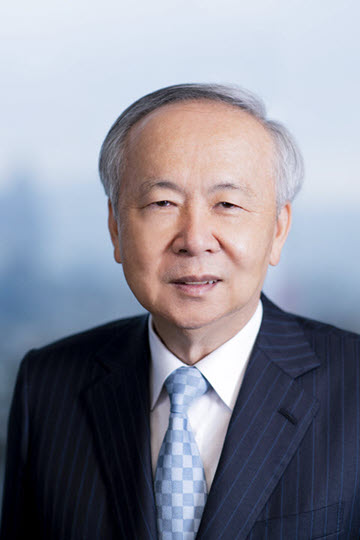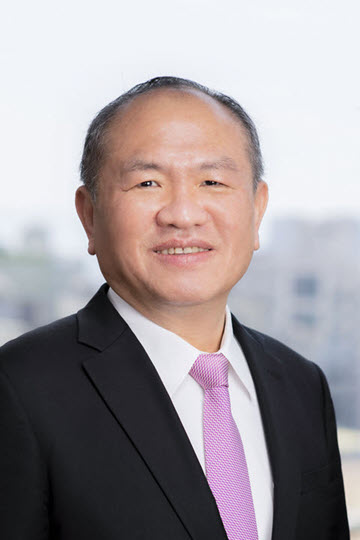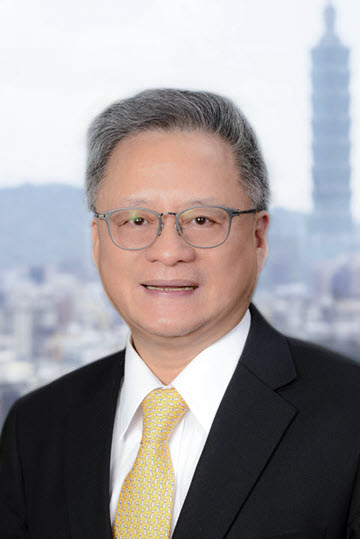Directors
Yuanta Financial Holdings has a set Director Selection Process which lays out in detail the qualifications and abilities expected of board members, how candidates are nominated and elected, how votes are tallied, electoral matters, and how elected candidates are informed. Additionally, in consideration of the makeup of the Board of Directors, no more than half of the directors may have a spousal or second-degree familial relationship with any other director(s). The Director Selection Process lays out the skills directors are expected to have in nine areas, including operational decision-making, business management, crisis management, industry knowledge, international market observation, and risk management. The members of the board are also 100% equipped with the knowledge, skills, and personal qualities needed to carry out their duties.
Procedures of Director Election
Independent Directors
Yuanta’s director (and independent director) elections have a set nomination system in which shareholders holding 1% or more of the Company’s total shares, as well as the board of directors must submit a list of director nominations. After being reviewed by the board to ensure that candidates meet all necessary conditions, a final list of nominees is submitted to the shareholders meeting for approval. Independent directors make up 44% of board members, with their role and functions regarding both the Board and the Company’s operations are clearly laid out in the “Scope of Duties for Independent Directors”.
In addition to attending regular board and Audit Committee meetings, each independent director also meets with corporate leadership and both departmental and office managers to go over issues regarding corporate governance or business development in hopes of ensuring maximum effectiveness through the harnessing of the skills and assistance of management. In order to spur operational efficiency and business decisions & plans, the Company not only provides each independent director with their own dedicated office and equipment, but also a personal secretary to assist in the timely administration of affairs. Additionally, independent directors personally visit the Company several times each week, investing considerable time reading through meeting minutes and making appointments with managers to gain a deeper knowledge of the Company's financial, accounting, auditing, and risk control affairs and the overall situation of the Company.
Independent Director Election Information
Rules Governing the Scope of Powers for Independent Directors
Independence Criteria for Independent Directors
Performance Evaluation of the Board and Functional Committees
In accordance with the Board and Functional Committees Evaluation Procedures of Yuanta Financial Holding Company, Ltd. (hereinafter referred to as the “Evaluation Procedures”), the board of directors and the functional committees of the Company shall conduct the performance evaluation of the board of directors and the functional committees annually in accordance with the evaluation procedures and evaluation indicators. The results of the performance evaluation of the board of directors and the functional committee for the year 2024 were discussed and approved by the eleventh (11th) nominating committee meeting of the ninth (9th) board of directors on December 25, 2024 and the 34th meeting of the ninth (9th) board of directors on December 25, 2024.
The Company shall consider the Company’s situation and needs to establish the items for board performance evaluation, and shall include at least the following six major aspects:
1. Level of involvement in the Company's operations
2. Raising the decision-making quality of the board
3. Composition and structure of the board
4. Director selection and continuing education
5. Internal controls
6. Involvement in sustainable development (ESG)
The performance evaluation of a board member (self or peer) shall include at least the following six major aspects of measurement:
1. Mastery of the Company's goals and tasks
2. Awareness of a director's responsibilities
3. Level of involvement in the Company's operations
4. Internal relationship management and communication
5. Director professionalism and continuing education
6. Internal controls
The performance evaluation of the audit committee shall include at least the following five major aspects of measurement:
1. Level of involvement in the Company's operation
2. Awareness of the audit committee's responsibilities
3. Raising the decision-making quality of the audit committee
4. Composition of the audit committee and member selection
5. Internal controls
The performance evaluation of the remuneration committee shall include at least the following five major aspects of measurement:
1. Level of involvement in the Company's operation
2. Awareness of the remuneration committee's responsibilities
3. Raising the decision-making quality of the remuneration committee
4. Composition of the remuneration committee and member selection
5. Internal controls
The performance evaluation of the sustainable development committee shall include at least the following five major aspects of measurement:
1. Level of involvement in the Company's operation
2. Awareness of the sustainable development committee's responsibilities
3. Raising the decision-making quality of the sustainable development committee
4. Composition of the sustainable development committee and member selection
5. Internal controls
The performance evaluation of the nominating committee shall include at least the following six major aspects of measurement:
1. Level of involvement in the Company's operation
2. Awareness of the nominating committee's responsibilities
3. Nomination review and decision making
4. Raising the decision-making quality of the nominating committee
5. Composition of the nominating committee and member selection
6. Internal controls
The performance evaluation of the risk management committee shall include at least the following five major aspects of measurement:
1. Level of involvement in the Company’s operation
2. Awareness of the risk management committee’s responsibilities
3. Raising the decision-making quality of the risk management committee
4.Composition of the risk management committee and member selection
5. Internal controls
The Company conducts its own performance evaluation by means of internal questionnaires. The executive unit of the performance evaluation collects information related to the activities of the board of directors and functional committees, and distributes the relevant self-evaluation questionnaires to be fill out, such as Schedule 1 “Self-assessment Questionnaire of the Board of Directors’ Performance Evaluation,” Schedule 2 “Self-assessment Questionnaire of the Board Members’ (Self or Peers) Evaluation,” Schedule 3 “Self-assessment Questionnaire of the Audit Committee’s Performance Evaluation,” Schedule 4 “Self-assessment Questionnaire of the Remuneration Committee’s Performance Evaluation,” Schedule 5 “Self-assessment Questionnaire of the Sustainable Development Committee’s Performance Evaluation,” Schedule 6 “Self-assessment Questionnaire of the Nominating Committee’s Performance Evaluation,” and Schedule 7 “Self-assessment Questionnaire of the Risk Management Committee’s Performance Evaluation.” After the completed questionnaires are collected, the evaluation results are recorded and compiled according to the scoring criteria of the evaluation indicators, and the report is submitted to the nominating committee and the board of directors for discussion.
The results of the performance evaluation of the Company’s board of directors will be provided to the nominating committee for reference in the selection or nomination of director candidates, and the results of the performance evaluation of individual directors will be provided to the remuneration committee for reference in determining their individual remuneration.
In order to enhance the effectiveness of the board of directors’ operations, the performance evaluation is conducted by an external professional and independent organization or a team of external experts and scholars at least once every three years as stipulated in the Evaluation Procedures. The external evaluation organization or team of external experts and scholars to be appointed to conduct the performance evaluation of the board of directors shall be “professional and independent,” “a relevant organization or management consulting firm that mainly undertakes education and training courses related to the board of directors,” “a relevant organization or management consulting firm that provides services to enhance corporate governance, etc.” At least three experts or scholars in the field of board of directors or corporate governance shall also be appointed to evaluate the implementation of the performance evaluation of the board of directors, complete the external evaluation analysis report, and present the evaluation results and improvement plans to the board of directors for reporting.
In July 2024, the Company commissioned the Taiwan Corporate Governance Association (TCGA) to conduct a board of directors’ performance evaluation for the period from August 1, 2023 to July 31, 2024. The association appointed three evaluation experts to form a board performance evaluation interview team to complete this external board performance evaluation by referring to various written information provided by the Company, the results of an online questionnaire completed by members of the Company’s board of directors, and public information, and interviewing relevant members. The online questionnaire for board members is divided into five dimensions: board composition and division of labor, board guidance and supervision, board authorization and risk management, board communication and collaboration, and board self-discipline and improvement, with a total of 30 questions. An anonymous questionnaire was sent to all board members asking for individual directors’ agreement with different questions of the different dimensions.
The association and the evaluation experts have no business dealings with the Company and the evaluation report was presented on October 29, 2024. The Company reported the evaluation results at the 34th meeting of the ninth (9th) board of directors on December 25, 2024, and relied on the results of the evaluation as a reference for the Company’s future planning, establishment, and enhancement of the board’s functions.
A summary of the evaluation of the Company by the TCGA and its recommendations and the Company’s improvement actions are set forth below:
Summary of evaluation:
“The board of directors of your company was re-elected in 2022 and the new board maintained nine (9) seats, with four (4) independent directors, one (1) of whom was a woman. The board members have diversified professional backgrounds and extensive practical experience, which meets the needs of the Company’s operational developments and strategic objectives. There are five functional committees under the board of directors of your company in which the members actively participate. Your company regularly reviews the roles and composition of the functional committees on an annual basis, demonstrating your commitment to keeping up with the times and operational developments..
Your company emphasizes on the nurturing of talent for succession and the nominating committee regularly supervises the training and development of senior managers and succession planning. Approximately 95% of your company’s key senior executives were appointed through internal job rotation and promotion, and the training of successors has been included as an important indicator in the performance evaluation of executives at all levels.
Your company arranges interviews with the independent directors before the appointment of the new auditor-general. The independent directors participate in the annual performance evaluation of the auditor-general, the chief risk officer, and the head of corporate governance, either orally or in writing each year, and fully implement the functions of the audit committee in supervising financial reporting and internal control systems.
In order to implement corporate governance and enhance the effectiveness of the board of directors, your company commissioned our association to conduct an external evaluation for the third time this year. In this evaluation, all board members responded to the online questionnaire, and in terms of the five major dimensions as a whole, the recognition score reached 6.97 out of 7, indicating that your company emphasizes on corporate governance, demonstrates self-improvement, and continuously improves the effectiveness of the board of directors.”
Recommendations:
-
Your company has elected one female director to the current term of the board of directors. It is proposed that, in accordance with your Company’s board diversity goal adopted in April 2024, when the board of directors is re-elected for the next term (2025), it is advisable to increase the number of female directors by one-third in accordance with the needs of the Company’s operation and development, so as to enhance the gender diversity of the board of directors as a whole.
-
Your company has established a sustainable development committee with the chairman as the convener, which is underpinned by the office of integrity management and the corporate sustainability office. It is recommended that your company consider setting up a chief sustainability officer in accordance with the Sustainable Development Action Plans for TWSE- and TPEx-Listed Companies (2023) issued by the Financial Supervisory Commission to help coordinate the promotion of sustainability strategies and cross-departmental cooperation, as well as to oversee the effectiveness of the implementation of sustainability projects.”
Improvement Actions:
- At the 26th meeting of the ninth (9th) board of directors of the Company on April 24, 2024, the Company has included the percentage of directors of different genders to reach one-third of the total number of seats in the board of directors as a diversity policy goal, and it is planned that when the directors are re-elected in 2025, the Company will increase the number of female directors in order to reach the goal of one-third of the total number of seats in the board of directors.
-
At the 34th meeting of the ninth (9th) board of directors held on December 25, 2024, the Company approved to name the person in charge of the corporate sustainability office as the chief sustainability officer, with the aim that the chief sustainability officer will lead the corporate sustainability office in continuously coordinating the promotion of sustainability strategies and cross-departmental cooperation, and overseeing the effectiveness of the implementation of sustainability projects.
Board of Directors and Functional Committee Self-Assessment Results
Succession Planning
The Company employs a candidate nomination system to elect directors. The Nominating Committee shall nominate candidates according to the number and qualifications of the directors to be elected for the term. After the board of director approves the candidate nomination, the candidates are combined with the nominees recommended by the shareholders to be put to a vote in the shareholders’ meeting.
For the succession planning of the board members, in addition to compliance with legal requirements, the Company shall seek out suitable candidates with the required diverse backgrounds covering professional knowledge, skills, experience, and gender, as well as the standard of independence, based on the Company’s development direction and medium-to-long-term strategic goals. Besides being considered with a diversified range of knowledge and skills (such as finance, law, accounting, industry, finance, marketing, technology, or risk management) and industry-related experience, the succession candidates shall have a comprehensive competency in operational judgement, accounting and financial analysis, business management (including subsidiary management), crisis handling, industry knowledge, international market, leadership, decision making, and risk management knowledge and capability.
In consideration of the positioning of the professional directors of the board of a financial holding company (FHC) and the Company’s operational and strategic development, the board members shall not only be equipped with the aforementioned abilities but also have the ability to advance the Company’s core business and medium-to-long-term development strategies as well as enhance corporate governance in order to fully execute the capacity of the board in decision making and overseeing the Company.
The key management staff and functional heads of the Company also attend board and other related meetings. In addition to familiarizing themselves with the operation of the board of directors and related meetings, they are able to gradually enhance their professional knowledge and judgmental ability through experience sharing and interaction in the formulation and development of corporate strategies, internal control, and compliance supervision and enforcement, and risk management control and response. They have also been working with the learning mechanism and channels of various directors’ education programs to continuously enrich the professional knowledge and quality of the successor directors. Moreover, the Company has perfected their ability to serve as the future directors of the FHC by assigning professionals and senior managers to each subsidiary as directors to participate in the supervision and management of the subsidiary’s development planning, internal control, legal compliance, and risk control. The Company’s current chief executive officer, chief functional officers and related executives have experienced directorships and supervisory positions in subsidiaries and are familiar with operations and decision making of the board as well as internal control, risk control, legal compliance, and corporate strategic planning of each company. This combination of practical participation and personal professional training can enhance the vision of decision making and supervisory ability, which is an excellent talent pool for the succession planning of the board of directors of the FHC. The Company conducts an annual performance evaluation on its directors and the directors of its subsidiaries. In addition, internal evaluation of the senior management staff on their performance targets is also conducted by each company, which may be used as a reference in selecting succession candidates for directors.
Overall, the Company’s director succession plan not only recruits suitable professionals from outside the Company, but also prepares future successors through the training of directors and senior managers within the Company and its subsidiaries, so as to ensure that both “professionalism” and “legacy” are taken into account and to lay a good foundation for the Company’s sustainable operation
On June 10, 2022, the Company fully re-elected its board of directors. In accordance with the Company’s development direction and medium- and long-term strategic objectives, the Company elected Mr. Chien Weng, chief executive officer of the Company, and Ms. Sheau Wen Yang, an independent director of Yuanta Life, as the new directors, whose professional qualifications are in line with the Company’s diversity policy and objectives, as suitable successors.
In the year 2022, the FHC recruited a number of professionals to serve as directors and independent directors of its subsidiaries, including Mr. Pin Cheng Chen (former Vice Chairman of KGI Futures) as a director of Yuanta Securities and Yuanta Futures, and Mr. Chi Chun Liu (Director of Center for the Study of Banking and Finance, National Taiwan University), Mr. Jin Tin Pan (former Chairman of Taiwan FamilyMart Co., Ltd.), Mr. Chung Chuan Wu (former Deputy Director General of Insurance Bureau, Financial Supervisory Commission (Taiwan)), Mr. An Pin Chen (former Executive Director of FinTech Innovation Research Center, National Chiao Tung University (Taiwan)), Ms. Yeali S. Sun (Board Director of National Institute of Cyber Security (Taiwan)) and Mr. Biing Shen Kuo (former Board Director of First Financial Holdings) as independent directors of Yuanta Securities, Yuanta Bank, Yuanta Life, and Yuanta Futures, and appointed Ms. Christine Hu (former Director of News Department of USTV) as chairwoman of Yuanta Securities Investment Consulting. The addition of outside professionals to the board of directors of each subsidiary of FHC not only enhances the vision of decision making, but also deepens the supervisory ability and strengthens corporate governance, and significantly improves the effectiveness of the board of directors.
The current chairman of FHC, Mr. Tony Shen, chief executive officer of FHC, Mr. Chien Weng, chairman of Yuanta Bank, Mr. Tsai Yu Chang, chairman of Yuanta Securities, Mr. Vincent Chen, chairman of Yuanta Futures, Mr. Tien Fu Lin, chairman of Yuanta Securities Finance, Mr. Shao Hsing Kung, and chairman of Yuanta Venture Capital, Mr. Arthur Chen, have all served in senior management positions in Yuanta Group, all of which are concrete manifestations of the “professionalism” and “legacy” of the directors’ succession planning of the Company.









 元大金控
元大金控